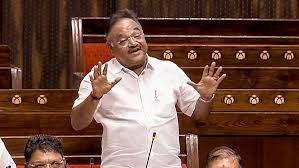New Bengal BJP chief: ‘90% fatalities in state political violence are Muslims… How long will they listen to mandir, masjid stories?’

In a bold and politically charged statement, the newly appointed West Bengal BJP president has claimed that a staggering 90% of the victims of political violence in the state are Muslims. His remarks, aimed at questioning long-standing religious polarisation in Bengal politics, have triggered a wave of reactions from political leaders, analysts, and citizens alike.
“How long will they continue to fall for mandir-masjid stories?” he asked during his first public address after assuming office. “They deserve safety, jobs, and development—not bloodshed.”
The remark comes at a time when Bengal’s political climate is intensely volatile, with incidents of political clashes, grassroots-level turf wars, and post-poll violence still fresh in public memory.
Shifting the Narrative: BJP’s New Strategy
The BJP’s performance in West Bengal has fluctuated significantly in recent elections. While it emerged as the principal opposition in the 2021 Assembly polls, it has since struggled to maintain momentum. The appointment of a new state chief appears to be part of a broader strategy to reset the party’s image and messaging.
Unlike earlier approaches that leaned heavily on religious and nationalist themes, the new BJP leadership in the state seems to be pivoting towards issues of law and order, socio-economic justice, and minority outreach.
Political observers see this as an attempt to break the Trinamool Congress (TMC)’s traditional stronghold over Muslim voters, who make up nearly 30% of the state’s population. The latest comments reflect an effort to paint the ruling party as having failed to protect even its most loyal support base.
Political Violence in Bengal: A Persistent Crisis
West Bengal has long had a reputation for violent political culture. From Left-Congress confrontations to TMC-BJP clashes, the state has witnessed decades of blood-stained elections, often with tragic consequences for grassroots workers and common citizens.
Reports from various rights groups and media investigations have revealed how political affiliations can often mean life or death for workers in Bengal’s interior villages and towns. The post-2021 Assembly election period saw widespread allegations of murder, assault, arson, and forced displacement, with both the BJP and TMC blaming each other.
While exact numbers remain contested, independent fact-finding teams and local journalists have documented dozens of fatalities, many of them from marginalized communities. The BJP’s claim that 90% of these victims were Muslims is yet to be substantiated by official or third-party data, but it has already ignited fresh discussions on political accountability and communal optics.
Muslim Voters in Bengal: A Block Under Pressure
For decades, Muslims in West Bengal have supported the Left, then shifted allegiance to Mamata Banerjee’s TMC, largely due to her vocal stand on minority rights and social welfare. However, critics argue that symbolic representation has often outweighed real policy benefits.
The new BJP chief’s remarks are seen as an attempt to tap into growing disenchantment among sections of the Muslim population, particularly younger voters. Rising unemployment, poor infrastructure in Muslim-dominated areas, and lack of adequate educational support have made many question their political choices.
“Politicians remember us during elections. The rest of the time, we are either targets or statistics,” said Imran Gazi, a college student from Murshidabad. “Maybe it’s time to demand real issues instead of slogans.”
TMC Hits Back, Calls Remarks “Opportunistic”
The Trinamool Congress has strongly condemned the BJP leader’s comments, calling them “opportunistic and divisive”. Senior TMC leader Firhad Hakim said, “The BJP is trying to shed crocodile tears for Muslims while running one of the most anti-minority governments at the Centre.”
TMC has repeatedly accused the BJP of weaponizing communalism and pushing majoritarian narratives to divide Bengal’s electorate. Party spokespersons dismissed the new strategy as a “repackaged version of the same divisive politics.”
Meanwhile, the state government has claimed that law and order have improved since 2021 and that all victims of violence—regardless of religion—have been provided assistance and justice through due process.
Civil Society Reacts: A Need for Peace and Accountability
The BJP chief’s comments have also sparked reactions from civil society groups, rights activists, and academics who have long campaigned against political violence in Bengal. Many welcomed the acknowledgment of Muslim fatalities, but warned against using it for electoral mileage.
“Recognizing the victims is important, but the solution lies in ending the cycle of violence,” said Anuradha Basu, a Kolkata-based human rights lawyer. “All parties must be held accountable. No community should be used as a pawn in the political chessboard.”
What Lies Ahead: An Election Battleground Reframed?
With panchayat elections around the corner and the 2026 Assembly polls not far off, the BJP appears keen to recast its identity in Bengal—from a party seen as communal to one that is concerned with justice, safety, and inclusivity.
Whether this strategy will succeed depends largely on voter perception, grassroots organisation, and credibility. Can the BJP convince Muslim voters of its intent, given its national image? Can it maintain consistency in its messaging without reverting to religious polarization? These questions will shape Bengal’s political future.
In the end, the statement—“How long will they keep listening to mandir-masjid stories?”—may be less a challenge to Muslims, and more a call to all voters to look beyond religious rhetoric and demand governance that delivers.






